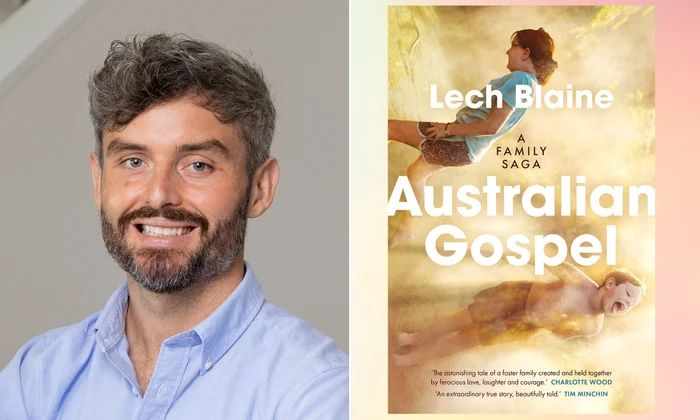Review: Australian Gospel: A Family Saga, Lech Blaine, Black Inc
Australian Gospel, which recently won The Age Book of the Year competition, is the story of Lech Blaine’s foster siblings, his parents’ love for a family of foster children, and his siblings’ biological parents, Michael and Mary Shelley, who spent decades trying to reunite with their children through harassment and stalking.
Blaine, the author of a book about a car crash he survived as a teen, writes here about a kind of slow-motion car crash, but in novelistic style, with short, punchy sentences and lots of dialogue, the events described coming relentlessly like storm-tossed waves.
The Blaines and Shelleys are chalk and cheese. Tom and Lenore Blaine are working-class publicans who, until they have Lech, don’t have children of their own and provide a foster home for what ends up seeming like a busload of kids; the Shelleys are children of Sydney socialites and born-again religious nuts who think, not without basis, that the Blaines are uncultured, crude and irreligious.
Michael Shelley once counted Jacki Weaver as a girlfriend. (She dumped him for a celebrity singer.) He and Mary were both from troubled families. Michael was a hotelier and nightclub owner, and womaniser, who slid into bankruptcy and abuse. Both he and Mary had mental health issues and got into enthusiastic Bible reading which fuelled theories about where society was going wrong. They held a strange mix of anti-capitalist environmentalism and anti-feminism, a legacy of broken childhoods. Both would take up an extreme and belligerent form of Christianity.
Their extreme views and itinerant, petty-criminalistic lifestyle led to their children being taken away by the government – most ended up with the Blaines. (Helpfully, the book includes a family tree diagram.) The book begins with Michael’s kidnapping of his oldest son Elijah from a foster home and his arrest in Canberra where he appealed to the Supreme Court and Human Rights Commission, causing a media sensation, partly due to his supposed resemblance to Jesus (long hair and beard, robes).
Michael was unhinged but smart and charismatic. On the one hand, he was prophetically intolerant of hedonistic lifestyles, and of the exploitation of Indigenous peoples and the poor. But he was also intolerant of gay people and working mothers and had a propensity to highly abusive and threatening tirades, in print and in person. The Shelleys criss-crossed the country, sending threatening letters to their children and government agencies. Michael, whom Lech describes as an ‘evangelical PI’, repeatedly discovered the addresses of his fostered children, and, despite court orders, the Shelleys turned up unannounced.
It’s exhausting enough reading about the Shelleys creating nuisance wherever they went – one can only imagine the fear in the Blaines (though Tom Blaine is stoically dismissive of Michael Shelley’s threats – he’s a publican and can hold his own). At times, the Blaines felt they had to move to escape. Lech writes that as a child, in the midst of being terrorised by the Shelleys, he couldn’t imagine anything worse than reading a book about them. It’s certainly an extraordinarily picaresque tale. At one point, his exasperated father remarks that you couldn’t make it up.
The Shelleys threaten social workers and break into the houses of Queensland premiers and New Zealand prime ministers, disrupt church services and are constantly in and out of prisons and mental hospitals. Michael is locked up in South Africa; he and Mary cause havoc in churches in Rome, London and Paris. They harass the Australian ambassador in the UK. At times there is maybe too much information here. Lech prints many of Michael’s deranged letters in full, but he obviously wants the reader to understand the vengeful religiosity that drove the Shelleys. He perhaps plays up the contrast with his parents, who had no time for religion – understandably, considering – but who were not stupid, had sympathy for the underdog, and a love of life and family.

Lech obviously sides with his parents, although he shows glimpses of sympathy for the Shelleys, who were clearly unwell and traumatised by the loss of their children. Lech has little sympathy for their Christian views, if one can describe them so, though, interestingly, both sets of parents show traits at the heart of Jesus ministry: Michael and Mary live an alternative, prophetic lifestyle at odds with materialistic culture and the power of authorities, but the Blaines exhibit an unpretentious selflessness and unconditional love – values that should be at the heart of any Christian church and that are antithetical to self-righteous rants and threats.
Nick Mattiske blogs on books at coburgreviewofbooks.wordpress.com and is the illustrator of Thoughts That Feel So Big.





